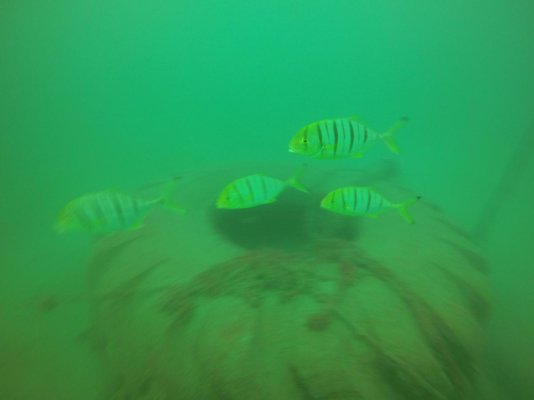ben2go
Guru
Many years ago, I tried snorkeling and diving of sorts. The diving deal was done on shore with a compressor and full mask. It was an intro deal for people interested in going for their SCUBA certs, license, or however that is done.
I have swim in some pretty murky nasty waters both by choice and necessity. When I put on a mask, and go under, I immediately have a panic attack and nearly pass out. I don't know why that is. Irrational fear for sure. In deep water, whether I can see the bottom or not, I get the same response as being hung off a cliff by my underwear. Ok, like a fear of heights thing. If visibility is low, I get claustrophobic and lose my breath.
Has anyone experienced this? If so, how did you get past it? My local SCUBA shop has reopened. I'm considering taking the classes and possibly learning to do in water bottom cleaning and repairs for when I build/buy a boat. I also want to be able to take care of emergency situations like clearing a fouled prop without losing my mind or life.
I have swim in some pretty murky nasty waters both by choice and necessity. When I put on a mask, and go under, I immediately have a panic attack and nearly pass out. I don't know why that is. Irrational fear for sure. In deep water, whether I can see the bottom or not, I get the same response as being hung off a cliff by my underwear. Ok, like a fear of heights thing. If visibility is low, I get claustrophobic and lose my breath.
Has anyone experienced this? If so, how did you get past it? My local SCUBA shop has reopened. I'm considering taking the classes and possibly learning to do in water bottom cleaning and repairs for when I build/buy a boat. I also want to be able to take care of emergency situations like clearing a fouled prop without losing my mind or life.



